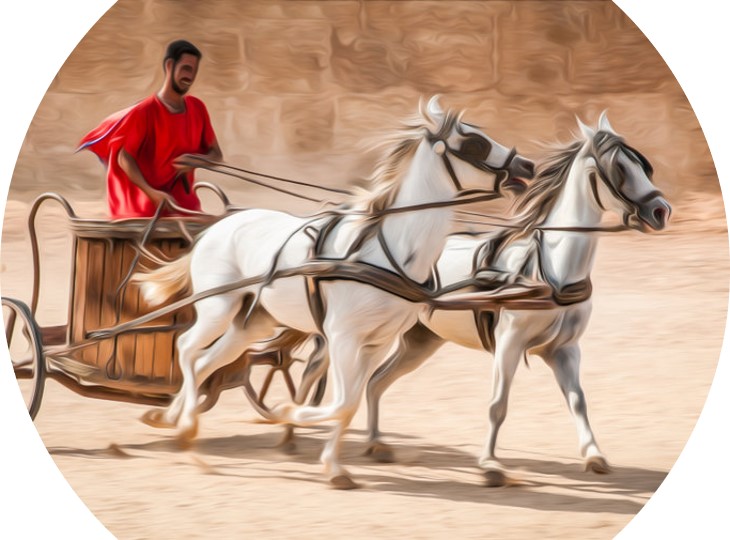Which Philip Baptized the Ethiopian?

In the eighth chapter of Acts of the Apostles in what we know as verses 26-40, we read the story of a man named Philip baptizing a Eunuch from Ethiopia. The traditional view is that this person is Philip the Deacon mentioned by Luke in Acts 6:5. Others hold that this person was in fact Philip called by Jesus to be an apostle (John 1:43-44). This blog post presents evidence for both, and reaches a startling conclusion.
In Acts 8:26-40 we read about a Eunuch from Ethiopia. This person was riding in a chariot reading from the 53rd chapter of Isaiah. He was the treasurer of the Queen’s court. He was returning from worship in Jerusalem. God instructs Phillip to approach him, and Phillip uses that very scripture to teach and ultimately baptize this person.
One argument which is often made for this being Philip the Deacon is found earlier in the chapter. Acts 8:1 tells us that, due to persecution, Christians were scattered “except for the apostles.” This argument does not seem persuasive. It seems clear that this Philip was in fact in Jerusalem (Acts 8:26) where only the apostles were. It was the road from Jerusalem to Gaza which God instructs Philip to take. Further, one could argue that God knew the apostles needed some direct guidance to motivate them to leave Jerusalem and that is why he was sent.
A second argument we have heard indicates that Philip had gone to Samaria and his preaching was so effective that the apostles in Jerusalem heard about it and sent Peter and John to give them the Holy Spirit. (Acts 8:14-16). When at least one person saw they were giving people power by the laying on of hands, he tried to buy that gift from him (Acts 8: 17-24). The argument is that since Phillip could not give the gift of the Holy Spirit, he was obviously not Philip the Apostle.
This argument is not persuasive for two reasons. First, Samaria is not near the road between Jerusalem and Gaza nor is there any indication of divine transport to the location, in fact quite the opposite (Acts 8:26). Second, it rests on the assumption that this Philip is the same Philip that is described in Acts 8:26-40 merely because they have the same name. There are several times in the Bible where others with the same name are mentioned in close proximity.
A third argument we have heard is that the narrative shifts in Acts 6 to focus on deacons. This seems to us to be counter indicated by Acts 8:14-17, and later in Acts 11:1+. In fact, much of the remainder of the Book of Acts focuses on events in the life of apostles.
On the other hand, there is solid evidence that this was Philip the Apostle. In Acts 6:1-4 it seems clear that the whole reason deacons were appointed were to free the apostles up to preach the word. That is obviously exactly what happened in Acts 8:26-40.
We should say that even our team is divided on this question. It is not clear cut. There are solid arguments both ways. Anyone who tells you they know authoritatively it is one or the other has not been Berean on this topic. One final question to contemplate this: why would God send a deacon if an elder/apostle was available?
It is not as clear cut as one may think. It may very well have been Phliip the deacon. However, one would have to make the case that Phiip the deacon left his position and role in Jerusalem. Further the whole reason this role was created was so the apostles could spend more time evangelizing. Stephen the deacon did perform “signs and wonders” but one could make a strong case that this was in support of his role serving the Grecian widows, in any case it was clear he was in Jerusalem. We are not sure what the Acts 21 story has to do with anything.
Thanks for sharing!
It’s clear that Philip the Deacon is the one intended in Acts 8. In Acts 8:40, Philip is caught away by the Spirit, and travels upland till arriving in Caesarea, where he apparently makes his home from then on. We hear nothing more of him until Acts 21:8-9, where Paul and his entourage, on the way to Jerusalem, make a stop in Caesarea and receive hospitality in the home of “Philip the evangelist, one of the seven.” Reference is made to his 4 virgin daughters, who have the gift of prophecy. I believe this gives us a reasonably conclusive answer. As to “why would God send a deacon,” it is clear that “the seven” became more than mere table-waiters, especially Stephen and Philip (albeit Stephen’s ministry was cut short by martyrdom).